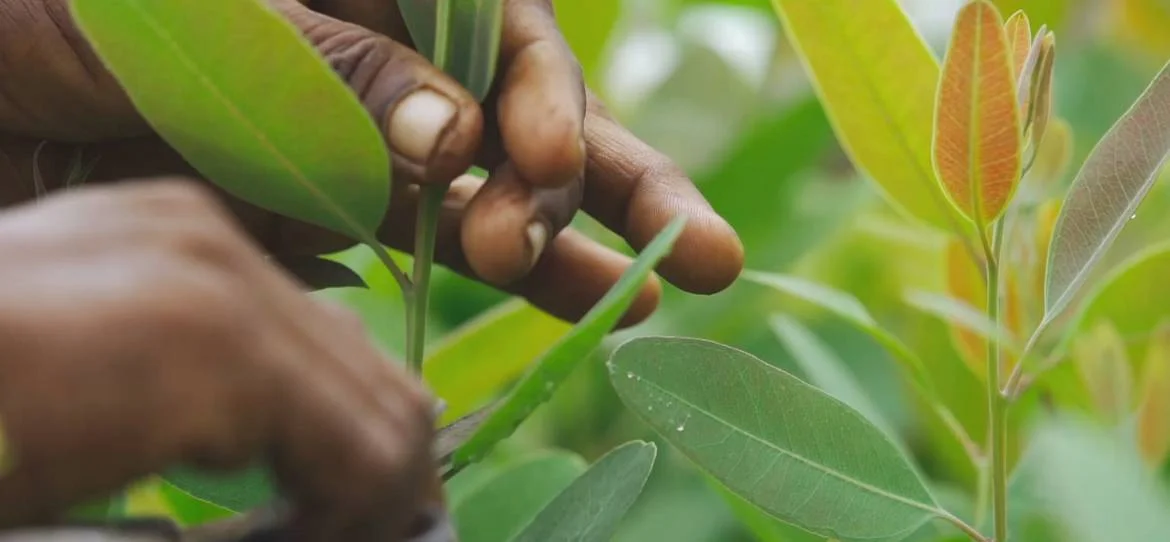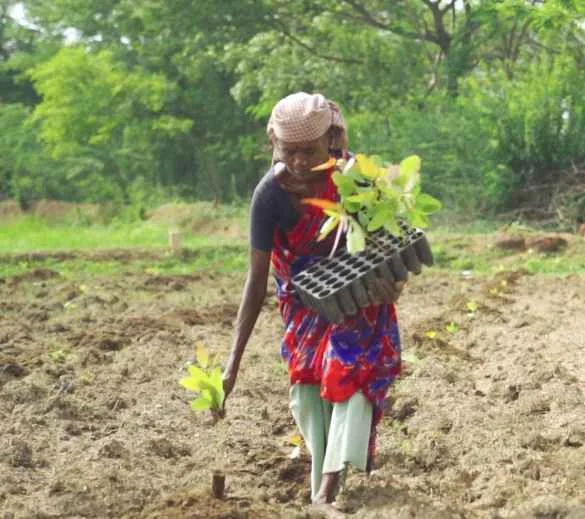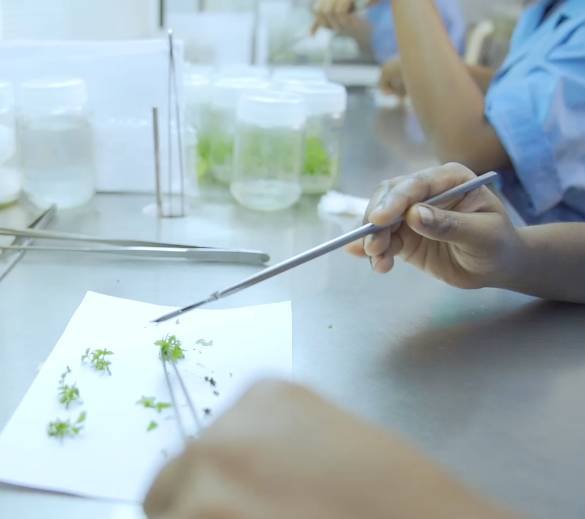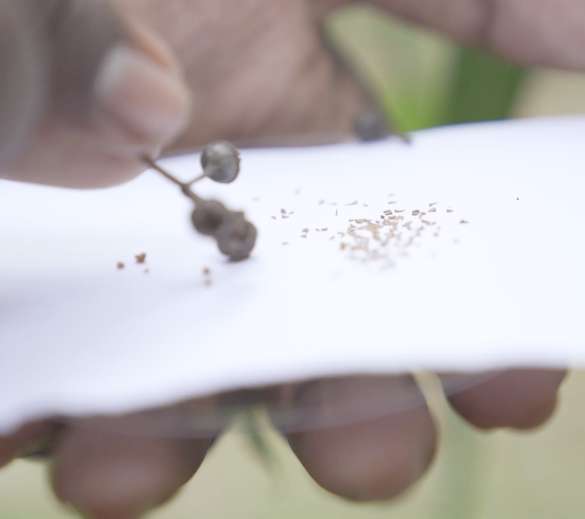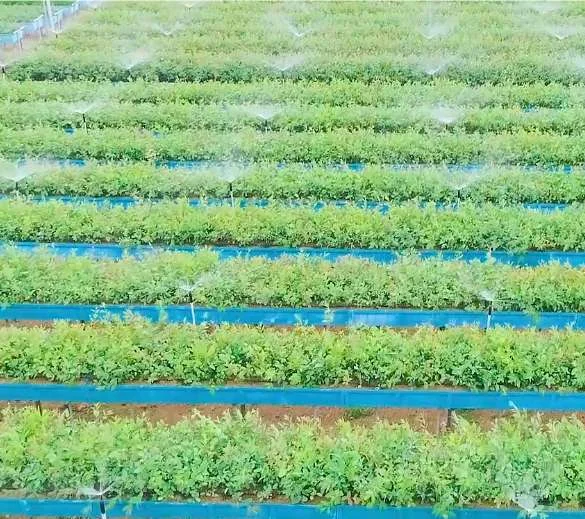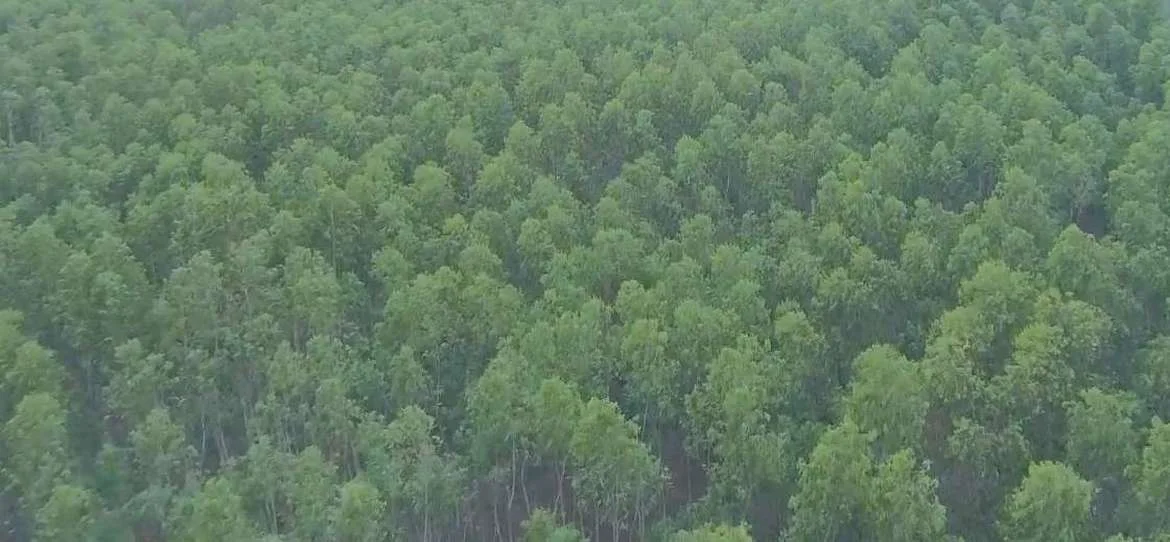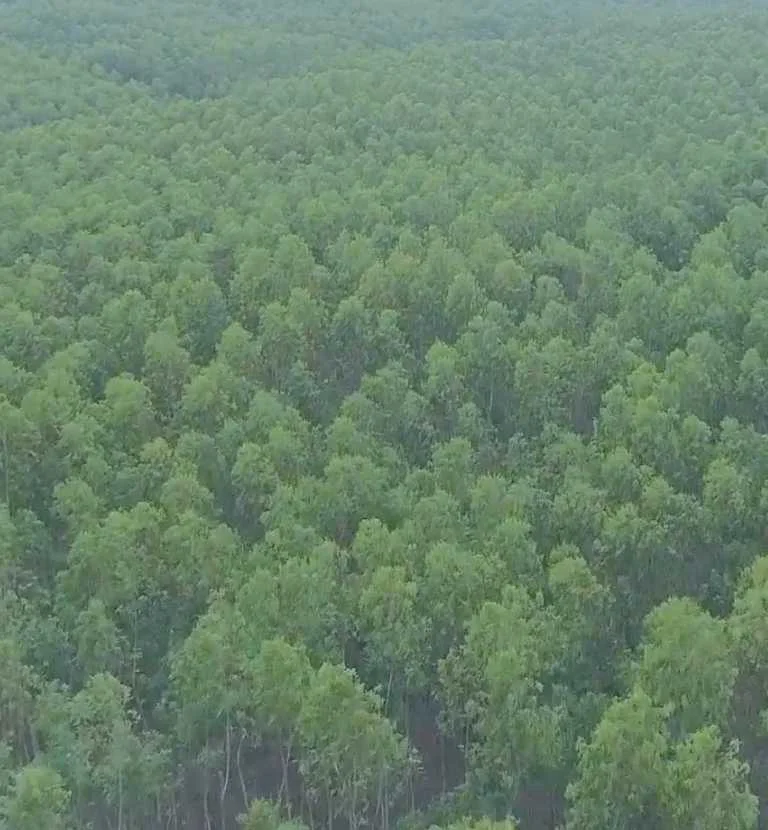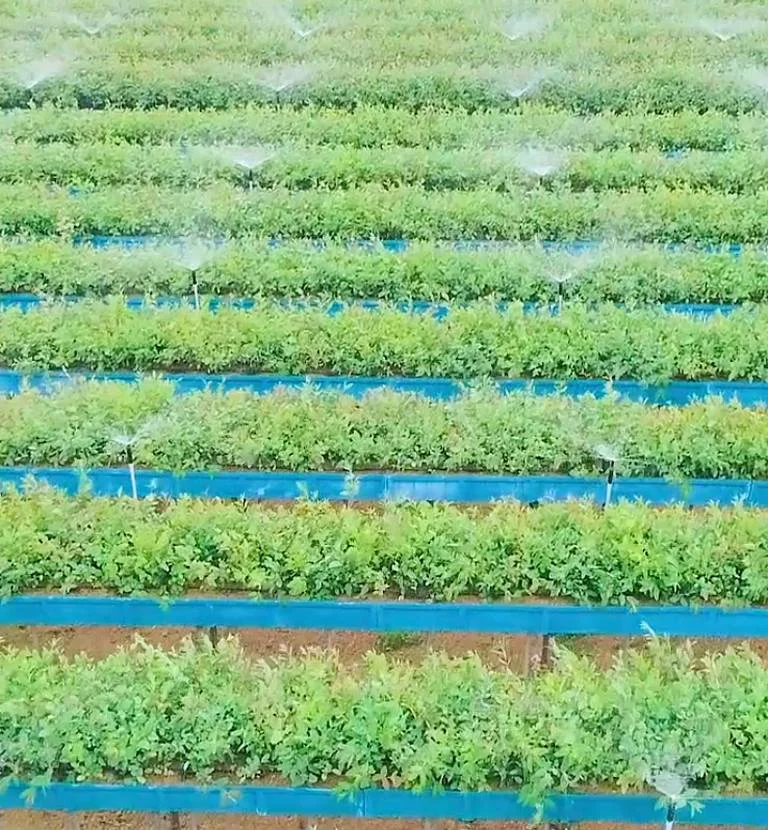Sustainable
Sourcing
Incepted in 2004, TNPL’s Plantation stems from our goal to achieve self-reliance in pulpwood. Covering over 1,87,680 acres of plantation over the past 17 years, this initiative is dedicated to making pulpwood sourcing economically viable, socially acceptable and environmentally compatible.

Vision and Mission
Our Vision is to achieve quality and excellence in the sphere of Plantation through adoption of professional and ethical standards there by Serving the People and Planet
Our Mission is to
- Develop renewable and sustainable pulpwood plantations through effective, innovative and best practices available.
- Disseminate efficient resource management practices among the farming communities and foster the growth in rural economy, employment and regional development.
- Demonstrate commercial forest plantations as alternate land use in arid and semi-arid regions by adopting technological research inputs.
- Deliver the raw material by responsibly sourcing of pulpwood
Objectives
- To develop renewable and sustainable plantations in barren and degraded lands and thereby increasing the tree cover outside the natural forest.
- To improve the socio-economic status of small and marginal farmers.
- To Educate and train the farmers about modern Technology in pulp wood tree farming.
- To become sustainably self-reliant and responsibly sourcing the wood
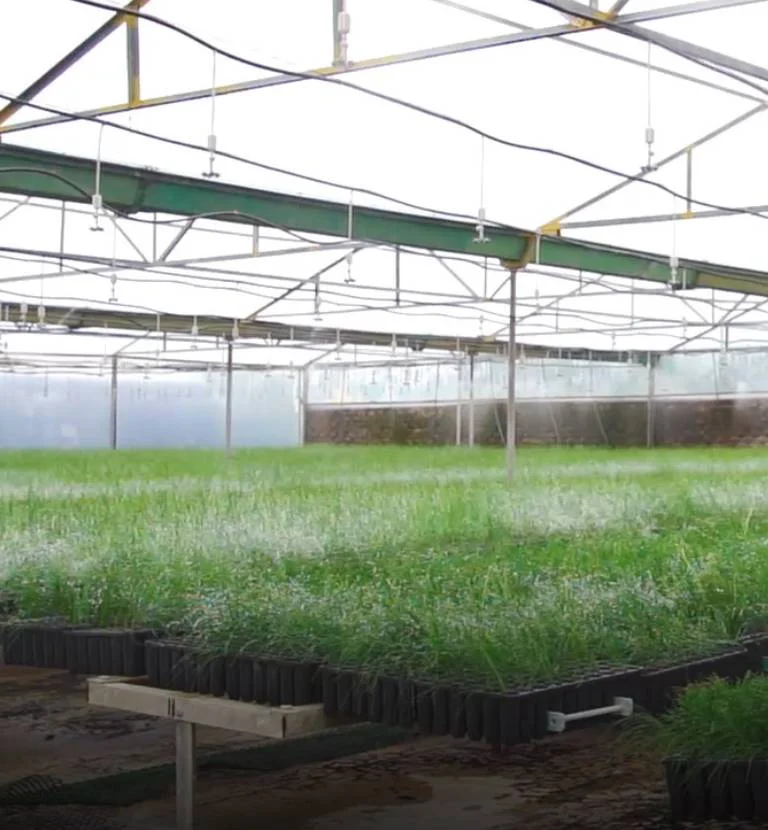
Plantation Schemes
Our Plantation programme envisaged to develop pulpwood cultivation broadly under two schemes.
Captive Plantation
- Develop renewable and sustainable pulpwood plantations through effective, innovative and best practices available.
- Disseminate efficient resource management practices among the farming communities and foster the growth in rural economy, employment and regional development.
Farm Forestry
- Promoting pulpwood plantations in small and marginal farmer’s land..
- Supplying quality seedlings/clones at subsidized price to the farm gate.
- Providing buy back assurance with minimum support price
Operational Area
The area of operation in Tamil Nadu & Pondicherry is divided into 4 zones viz North (7 Districts), East (7 Districts), West (9 Districts) and South (10 Districts). Each Zone is subdivided into 3 Regions and each Region is comprising 4 clusters. About 10-15 potential village is covered in each cluster and grass root level Plantation professionals is placed in each cluster to cater the need of the farmers.
TNPL’s Captive Plantation and Farm Forestry schemes have been instrumental for local and marginalized farmers to gain livelihood and financial independence. These programmes are mutually beneficial for both the farmers and for TNPL. It facilitates in sustainable procurement of wood while allowing the farmers to gain access to technological experts, hybrid quality plants at subsidized rate and an assured income. These schemes are economically viable, socially compatible and people centric and has helped many local and small farmers safeguard regular income and improved their quality of living.
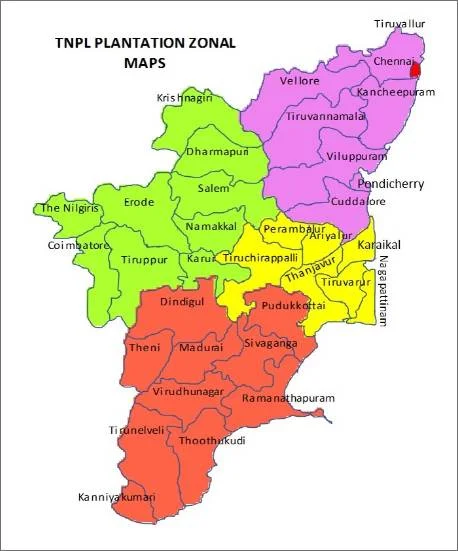
The plantation schemes implemented over 1,87,680 acres benefiting over 36000 farmers by raising 1,68,466 acres of Farm Forestry Plantation and 19,214 acres of Captive Plantation
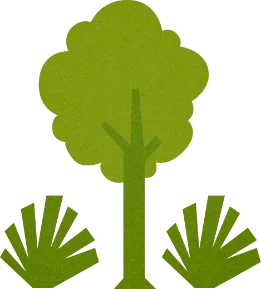
Clonal Propagation Centers
Nurseries
We are one of the most advanced Clonal Propagation and Research Centre (CPRC) in the country to propagate new superior pulpwood clones through apical shoot mini-cutting technology. The mother plantlets produced in the tissue culture lab are further mass multiplied through mini cutting technique at the Clonal Propagation Centres. To cater the need of the farming community we have established decentralized nurseries at five places strategically located nearer to the planting areas and the production capacity of the each nursery is as below:
| Location | Area (In acres) |
Capacity (In lakhs) |
| CPRC, Kagithapuram | 25 | 200 |
| PPC, Mondipatti | 12 | 100 |
| DNN, Kattrambakkam | 12 | 100 |
| DNE, Muthuservamadam | 10 | 80 |
| DNS, Thuvar | 5 | 50 |
| Total Capacity | 64 | 530 |
Species
We also propagate the native tree species viz., Dalbergia Sissoo, Melia dubia. Gmelina arborea apart from Eucalyptus hybrid, Casuarina hybrid, Leucaena leucocephala and Acacia mangium hybrid to avoid monoculture of large plantations
Through our advanced Clonal Propagation Centre, we have successfully produced 2502 lakh pulpwood plants and supplied 2242 lakh pulpwood plants to farmers in the past 17 years.
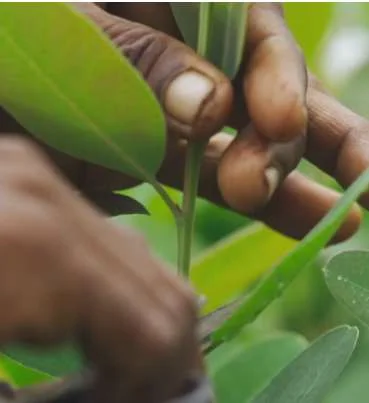
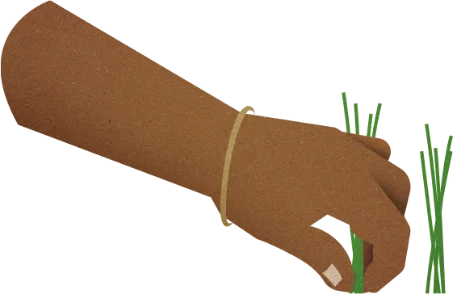
Forestry Research
Sustainability-forward
Our commitment to sustainability – in and beyond production – propels our passion for research and innovation resulting in the production of 50 million pulpwood trees every year.
Tree Improvement Program
Varying climatic conditions, soil types, fluctuating water availability, and diminishing land availability, pose the challenge of cultivating more trees in lesser space. Keeping these hurdles as stepping stone for improvement, we, with our expert team of Tree breeders, soil scientists, microbiologists and ecologists stream the knowledge together to arrive at solutions that are ecologically compliant, sustainable availability of pulpwood and remunerative for farmers. We produces superior quality saplings through its state of the art Forest Research and Development Team. Production of quality saplings that can tackle harsh and arid conditions involve Selection of superior trees from local sources, Introduction of new provenance from other countries, Inter and intra Hybridization, Selection of candidate plus trees, analysis of Superior Genetic material, standardization of propagation technique, multi-location trial and Release of new clones and production of quality saplings for commercial propagation. As a result of continuous research activities for the past 10 years, we have released three high yielding Eucalyptus clones viz., TNPL191, TNPL192 & TNPL193
Forestry Research Institute Linkage
Catering to the Plantation Programme’s scientific and technical needs, TNPL fosters research linkages with Forest College &Research Institute, Tamil Nadu Agriculture University, and Institute of Forest Genetics and Tree Breeding, This linkage is supporting the development of hybrids and new varieties, achieving precision in silviculture operation and pest and disease management.
Sustainable Silviculture Practice
Environment-positivity pervades through every function and form at TNPL. While embracing rejuvenation of degraded lands, we ensure even tree harvesting takes the sustainable route. By adopting precision silviculture, pulpwood is sourced either through clear felling or coppicing – a practice that allows the tree to regenerate naturally.
Achievement In Forestry Research
With our sustained pulpwood research activities to achieve the goal of higher productivity per unit area and thereby enhancing the return on investment by the farmer was ensured. We have introduced 36 new eucalyptus provenance from CSIRO, Australia, assembled 827 germplasm (706 Eucalyptus; 88 Casuarina; 25 Melia & 8 Subabul), Used a new crossing technique called AIP (Artificially Induced Protogyny) for 1,85,000 inter and intra sectional hybridization and produced 631 inter and intra species family seed lots were produced. Further the superior lots were made and tested in 113 multi location trials in different agro climatic zones of Tamil Nadu from which 153 Superior tress (Eucalyptus 131, Casuarina 7, Sissoo 5 & Subabul 10) were selected. With these tireless efforts we released three new Eucalyptus hybrid clones viz., TNPL 191, 192. 193 which are superior over the bench mark clones.
Responsible Sourcing
Of Pulpwood From Farm Land
We understood the pain of the farming community in producing the pulpwood by putting all their efforts and resources and finally fell into the traps of intermediary to market their produce for uneconomical returns. We started pulpwood procurement directly from Farmers in the year 2009-10 to ensure the user pays the right price directly to the grower and made pulpwood growing as an economically viable business for the farmer. We have procured 17.92 Lacs MT of Pulpwood from Plantation sources till 2020-21 by paying Rs.698.82 Crores directly to the Farmers Bank Account without any intermediate which is first its kind in any paper industry in India.
We introduced semi mechanized harvesting operations with power chain saw and debarking machines from 2015-16 and we are the first company in the country to introduce Mobile Debarker Machine for debarking the pulpwood in field itself from 2017-18 We are is the only company in the country procuring 100% debarked pulpwood from 2018-19. We always stand with the farmers whenever he shattered by the natural calamities like Cyclones. This was showcased during the Gaja cyclone in the year 2019-20 by clearing the cyclone affected trees and ensured for getting fair returns.
Ecology & Environment
In our commitment to leaving the ecological balance of our surrounding undisturbed, we compulsively monitor the repercussions of our operations while maximizing our positive impact through Sustainable forest management, safeguards forest health and productivity, and protects biodiversity – whilst securing the long-term availability of our renewable resources.
Biodiversity & Conservation
Biodiversity means the variety of life in genes, species, and in entire ecosystems. It is vital for the humankind. We are determined to put biodiversity at the top of the forest management agenda. We are working hard to become the industry leaders in biodiversity, and letting this mindset lead how we manage our forests
All our Captive plantations are certified by the Forest Stewardship Council as FSC FM Plantation with non-High Conservation Value lands. By avoiding planting near water catchment areas or any other culturally significant area for indigenous communities and ethnic groups, TNPL negates any chance of damage either to livelihoods or the ecosystem.
We have expanded our green initiatives by developing green belt over 650 acres around Unit-2 in Mondipatti, which houses 6.84 lakh of trees, which covers 55% of the total area. This is evident by the presence of 123 tree species, 26 species of shrubs, 124 species of herbs, 16 species of grasses, 35 species of medicinal plants, 91 varieties of birds, 88 varieties of orthopods, 16 species of reptiles, 10 species of mammals and 2 amphibians. Grey slender loris (Loris lydekkerianus) one of the Listed ‘Least Endangered’ in the IUCN’s List of Threatened Species, TNPL’s Unit II is home to 17 of these nocturnal primates. By planting and protecting their habitat trees, we help provide a safe space for them to thrive.
These initiatives have helped in making the ecosystem more balanced, leading to stability and a conducive environment Besides making the surrounding more beautiful, these areas have helped to restore water balance, capture fugitive emissions as well as attenuate the noise generated within the plant.
We have always been at the helm of undertaking newer techniques in order to minimize impact on the environment. It is constantly working to protect and preserve the biodiversity around its plant locations, increase the green cover and achieve environmental objectives through sustained R&D improvements in process and technology. With this in mind, at Unit-I, green belt was developed and maintained in 56.53 ha inside factory premises ie., 40.36% of the total area with 1.67 lakh trees of 49 species and 42.89 ha inside colony premises, which is 60% of the total area that contains 1.06 lakhs trees of 73 different species. We have also developed Biodiversity Park around its Unit-I in Kagithapuram with over 100 species of trees covering 6.07 hectares of land. Recently, we have also included another 60 species of trees/shrubs of flowering, fruit bearing, medicinal trees within the park. These flowering plants have attracted fauna such as butterfly, various birds, reptiles and animal which have helped in increasing the pollination rate and enhance the overall microclimate of the location.


